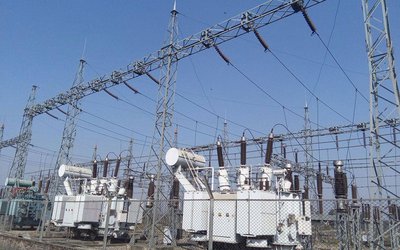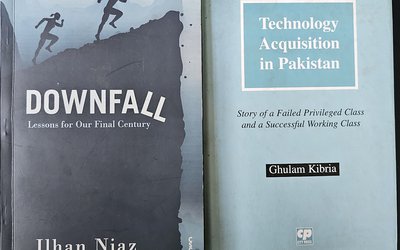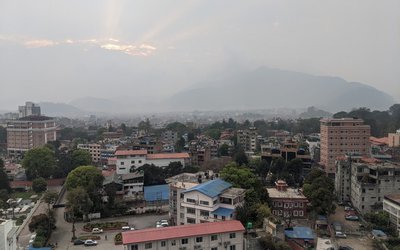Context
The Millennium Development Goals (MDGs) were established by the UN in 2002 following the Millennium Summit of United Nations which produced United Nations Millennium Declaration in September, 2000. The declaration was adopted by the UN General Assembly on 8th September, 2000. Based on the declarations, MDGs are eight international development goals that were set to be achieved by 2015 by all the 189 UN member states. The eight MDGs commit to eradicate extreme poverty and hunger, to achieve universal primary education, to promote gender equality and empower women, to reduce mortality, to improve maternal health, to combat HIV/AIDS,malaria, and other diseases, to ensure environmental sustainability and to develop a global partnership for development. Each of the goals has specific indicators and dates (to be met by the end of 2015). The country governments, international agencies and civil society groups have been working to achieve these goals. National and international resources have also been allocated for this purpose.
The government of Nepal has endorsed MDG Declaration and has incorporated these goals in its strategic frameworks/plans. The tenth plan (2002/03-2006/07), three year interim plans: (2006/07-2009/10) and (2010/11-2013/14) focused on the poverty reduction, development strategies and strategy to remove exclusion. The government has also published MDGs report in 2000, 2005, 2010 and 2013 which show the progress and the challenges on meeting MDGs and provide a solid foundation for assessing where the nation stands to meet MDG development.
Achievement and Challenges of MDGs
Nepal has made significant progress in the attainment of MDGs despite the long political instability coupled with the long absence of local elections, pro-longed transition of peace and constitution drafting process and other internal armed conflict. The 2013 MDG Report of the government shows that it has taken remarkable strides in meeting MDG indicators such as the reduction of poverty and hunger, increase in the school enrollment rate and decrease in the maternal mortality rate (MMR) rate. The progress is also noticeable in other indicators; women empowerment, environmental sustainability and global partnership for development.
At the same time, the Nepal MDG Report 2013 has clearly outlined the challenges in achieving MDGs over 13 years. The inequality and discrimination between male and female and the marginalization of Dalit and indigenous people are still high in the country. Notwithstanding this fact, the report highlights important issues: good governance, addressing disparity and inequality, urbanization, remittance, labor migration and national development, productive employment, zero tolerance to gender based violence, equitable access to quality health care services and adaptation to climate change to be addressed in the upcoming millennium development goals in Nepal. The civil society has also taken initiatives to raise pertinent issues to be included in Post MDGs.[1]
Discussion and Debates in Post 2015 Agenda
As the targeted date of MDGs will come to end in 2015, there have been worldwide discussions and debate on ‘The Post 15 Development Agenda’ to set the future development framework. The process of Post 15 Agenda has been led by the UN at the international level. Similarly, different international agencies such as Open Society Foundation (OSF), global civil society forums, UN agencies, Sustainable Development Solution Network and others have been taking their own initiation through consultations, meetings and campaigns and coming up with recommendations that could be incorporated in the country specific Post 15 agendas. Another level of discussion focused on how to set the indicators of all the agendas and their efficiency. The UN High Level Panel on Post 2015 also has set some fundamental principles.
National Debates and Discussions
In Nepal,the government is the main responsible body to recommend and demand its country specific/needed agendas to be incorporated in the UN Post 15 development framework. On behalf of the government, National Planning Commission (NPC) at the centre has been working on setting the post 15 agendas of Nepal to submit to the UN. However, the consultation and meetings for setting the agendas, objectives and goals have not reached the community level or even to the broader civil society groups as many of the civil society members and people are unaware and uninformed about it. Nepal Women Commission (NWC) has become a bit visible on raising this issue from women’s perspective whereas Nepal Human Rights Commission (NHRC) remains silent in this regard. At the same time, some of the civil society organizations like NGO Federation, networks of Beijing platform, WIPPA, Sankalpa have been conducting regional and national level consultations on the issue. On behalf of NGOs, NGO Federation has also been representing post 15 discussions in different forums at the global level. SAATHI Nepal has also been constantly raising its voice for the participation of civil society in government’s planning process.
Why Justice and Governance Should Be Key Components of Post 2015?
Despite the government’s commitment, a large number of women and marginalized community have not only been suffering from violence but also been deprived of justice. They have been facing challenges to get legal identity cards such as citizenship, birth registration certificate, marriage registration certificates and land ownership certificate. The violence affected women and marginalized community do not approach for legal process due to the lengthy and costly nature of the process. The practices of weak justice delivery institutions have impinged on people’s right to justice. For instance, there have been no continuous hearings in VAW cases, no interim relief and justice for the sexually exploited women in conflict, few perpetrators prosecuted on rape cases. The 35 days statutory limitations in rape case including discriminatory provisions on punishing the perpetrators and no free legal aid services to the victims which has also added hampered on their access to justice. Similarly, the current citizenship laws are discriminatory on the basis of gender; in particular, it curtails women’s right to convey citizenship to their children independently. Furthermore, there are large numbers of cases reported on caste based discrimination. The government has not ensured the effective implementation of the existing laws, rules and regulations. For the last 14 years, there has been no local government, which is a prime local level institution to provide services in the community. Reactivation of local institutions is essential to provide basic services in the community and ensure justice. The women, Dalits and marginalized community mostly suffer due to the weak implementation of law, vacuum of local institutions and socio-economic deprivation.
Caste-based discrimination remains a central feature of life and social interaction in Nepal. Dalits face a powerful combination of social discrimination and violence that enforces their second-class status. The perpetrators are rarely prosecuted. The reason for the Dalits’ limited access to justice can be attributed to three main reasons: widespread lack of awareness of the laws, and ingrained social norms breeding indifference among the law enforcing authorities, who refuse to register police reports or investigate cases; the government’s failure to prosecute individuals who practice untouchability; and the fear in the victims of untouchability who choose not to pursue justice due to lack of support. Thus, due to the lack of effective mechanism/ body to deal with crime of untouchability and the weak implementation of laws, the cases of untouchability and discrimination do not come out in public.
As a member of the UN, Nepal has been working on Millennium Development Goals for the last 13 years. In 2013 it has produced MDG progress report jointly with UNDP, Nepal. The report highlights some significant achievements of MDG by meeting some of its indicators. However, it largely ignores the situations of violence, justice and human rights violations which are deeply related with MDG targets. The recommendations and analysis of MDG progress report ignore the large number of population deprived of justice and suffering from violence though the reports does accept the high level of social exclusion in Nepal.
Data of Violence and Justice
The adjacent graph is based on information from the Registered at the Women and Nepal Police[1] (2012-2013). The leading women rights organization has identified the following important issues: unequal rights to citizenship, a narrow definition of rape, a 35-day statute of limitation on reporting cases of rape, a ban on women under 30 years migrating to the Gulf for informal work such as domestic work. The National Demographic Health Survey, 2011 shows women that have suffered from physical violence at some point since age 15 at 22%; women who have suffered from spousal or partner abuse at some point in time at 32% and the political participation of women at 30% in the current Constituent Assembly (CA), which is less than in the previous CA and constitutional mandate (33%).
Story-1: A woman from Solukhumbu district does not have her citizenship certificate. “My husband is not in contact with me since 1996 and his whereabouts are not known. I have my son’s birth registration certificate and recommendation from VDC office to enroll my son to school. I was denied a recommendation for citizenship certificate stating that I had failed to produce a marriage registration certificate and citizenship of my husband.”
Story -2: A woman from Ayodhyapuri VDC, Chitwan district: “I approached Ayodhyapuri VDC office to transfer citizenship to my child but the VDC office told me that I a recommendation for citizenship certificate for my son will only be issued if I come with my first husband who was Nepal army personnel and abandoned me.”
Source: Analysis of Nepalese Citizenship Laws From a Gender Perspective: A report launched by Nepal Women Commission (NWC) and Forum for Women Law and Development (FWLD) on February 2014.
Polices and Legal Provisions
Nepal is a signatory to all the major international human rights conventions, including the International Covenant on Economic, Social and Cultural Rights, the International Convention on the Elimination of All Forms of Racial Discrimination (ICERD 1965) and the Convention on the Elimination of All forms of Discrimination against Women ( CEDAW). Nepal’s 2007 Interim Constitution, Muluki Ain, or Country Code, of 1963 or the Declaration of the recalled Parliament in May 2006, all of these have said that “No person shall, on the basis of caste, be discriminated against as untouchable” – or similar words. Interim constitution has enshrined the principle of equality and justice which also recognizes the various rights of women including rights to justice, reproductive rights and other human rights. It has also recognized equal right to property. Nepal has indeed passed and amended many legislations and provision of laws to improve the status of women that includes Gender Equality Act 2006, Human Trafficking and Transportation Control Act 2007, 12th Amendment of Country Code that criminalizes witchcraft and recognizes it as a crime against state, Domestic Violence Act 2008. Two major code that is Criminal Code and Civil Code bills have been registered by the government that substitutes Country Code 1963. Various National Action plans on Human Rights, Trafficking, Gender Based Violence, UNSCR 1325 1820, and CEDAW has been formulated by the government to end violence and promote access to justice. The TRC law has been passed by the parliament for the purpose of ensuring the justice of conflict affected people.
The concluding observations of CEDAW urge the state party (Nepal government) to give priority to combating violence against women and girls and to adopt comprehensive measures to address such violence. The committee recommends developing a nationwide data collection program on cases of VAW, take immediate measures to abolish the statute limitations for the registration of cases of sexual violence to increase women’s access to justice. It also recommends providing equal and full citizenship right to women. The committee further recommends for state’s obligation and measures to other pertinent issues of women where justice and safety comes as a core in some recommendation and cross cutting in all.
Despite these policies and commitments the above data of violence and situation of justice shows that there is a gap in the policies and their implementation.
Way Forward
Drawing the lessons from MDG report, this is an opportunity for the government and the civil society to set Post 15 agendas of Nepal based on the ground reality of the country as one of the key challenges for the development is existing violence and injustice. Until and unless the issues of violence and justice are incorporated as one of the key cross cutting feature of every development goal of Post 15 MDGs, any other efforts of the development will remain incomplete. This has been clearly proved from Nepal’s MDG 2013 progress report coupled with progressive indicators of developments where millions of people fall victims of violence and injustice. Thus, it is imperative for Nepal to bring the agenda of governance, justice and safety in Post 15 MDG agenda which needs an advocacy at UN level with collaboration of civil society members and its stakeholders.
The national institutions such as National Women Commission, National Dalits Commission, and Nation Human Rights Commission have to be engaged during the consultation and preparation of the UN goal at the country level along with the engagement of civil society. As Nepal is the state party of nine major international human rights conventions, the development framework has to be based on the norms and values of human rights and justice. To make the process of setting Post 15 agenda inclusive through the bottom of approach and to address the real issues, the following initiatives are essential in the beginning phase- i) consultation of government agencies with civil society and constitutional bodies (national human rights institutions-NHRIs); ii) broader consultation with civil society from community to the national level. iii) Recommend the specific country based goal to the UN, which is practical and achievable. iv) Build broader consensus on understanding of core issues of post 15 and advocate at UN level to adopt the agenda of governance, justice and safety in Post 15 development framework.
[1] The data is cited from the WOREC website http://www.worecnepal.org/ne/node/592 archived on 28 May 2014.
About authors: Neetu Pokharel works as program officer at Alliance for Social Dialogue (ASD) and Som Niroula works as Senior Program officer at the ASD.
















